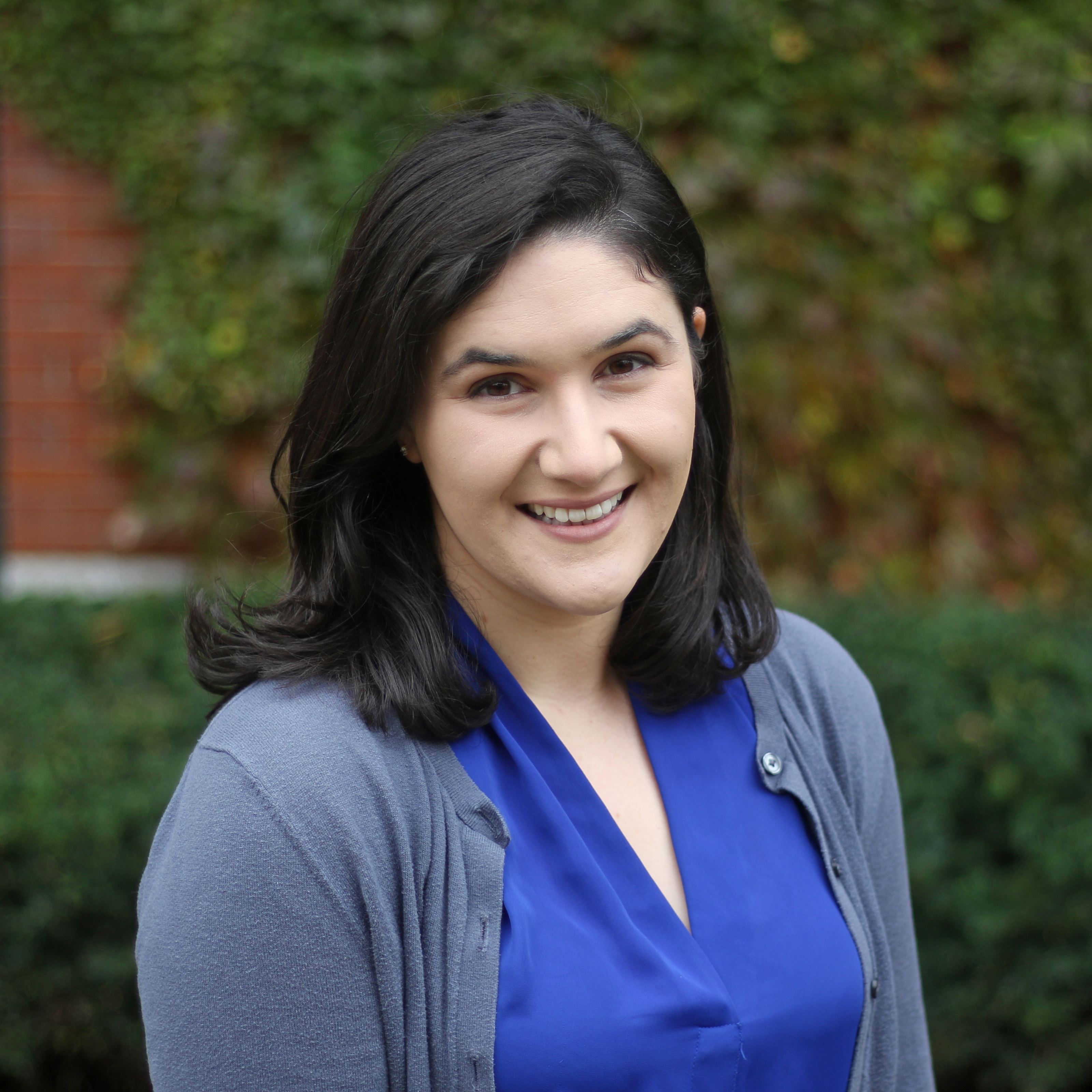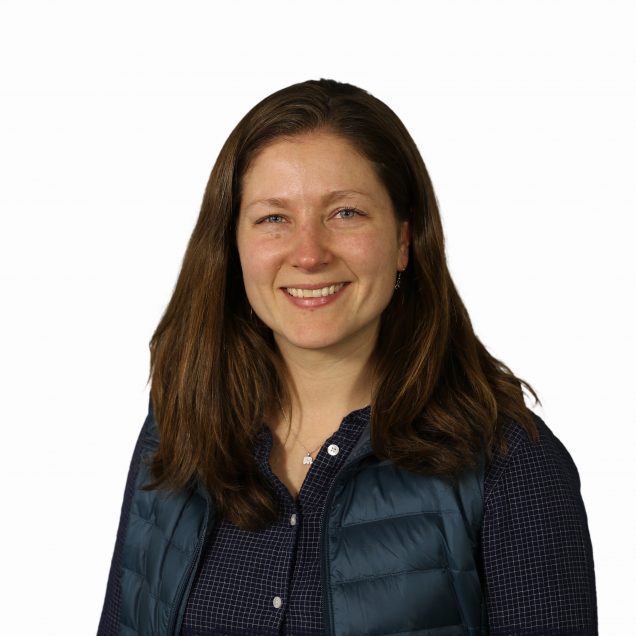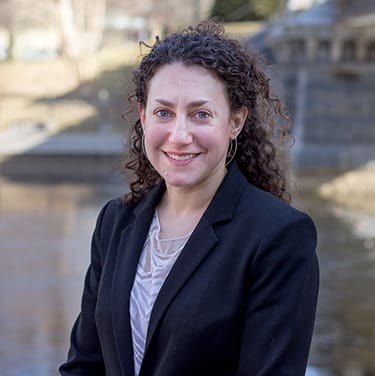Spring 2021 Seminar Schedule.
Join us every Friday (during the semester) from 12:45-1:45 pm online unless otherwise indicated.
Spring 2021 Schedule Summary |
||
| Date | Speaker | Seminar Titles/Topics |
| Jan 29th | Kate Connolly and Alexa Friedman
PhD Students Department of Environmental Health BUSPH |
Climate zone impacts on indoor air quality and energy use in multi-family homes across the eastern U.S.
and Exposure to manganese during critical periods of development and childhood neuromotor function |
| Feb 5th | Julian Marshall, PhD
John R. Kiely Endowed Professor Civil & Environmental Engineering Associate Chair for Diversity, Equity, Inclusion, and Climate University of Washington |
“Just” Pollution? Air Quality Engineering & Environmental Justice |
| Feb 12th | Evelynn Hammonds, PhD
Chair, Department of the History of Science Barbara Gutmann Rosenkrantz Professor of the History of Science Professor of African and African American Studies Harvard University |
TBD |
| Feb 19th | Justin M. Feldman, ScD
Health & Human Rights Fellow Harvard FXB Center for Health and Human Rights |
Race, Place, and Health Inequities in the US |
| Feb 26th | Melissa Checker, PhD
Hagedorn Professor of Urban Studies Queens College |
Environmental Racism and Health Inequities in Lived Experience |
| March 5th | Jeff Carlson & Leila Heidari
PhD Students Department of Environmental Health BUSPH |
Comparing Thyroid-based High-throughput Toxicological Values with Regulatory Guidance Values for Pesticides
and Assessing Vulnerability and Exposure to Heat in Massachusetts: A Multilevel Mixed-Methods Assessment in State, Community, and Personal Contexts |
| March 12th | Mahasin Mujahid, PhD, MS, FAHA
Associate Professor Epidemiology Berkeley School of Public Health |
Uprooted: Health Inequities and the Embodiment of Structural Racism |
| March 26th | Adrianna Quintero
Senior Director of Diversity, Equity, and Inclusion Energy Foundation |
The Importance of Equitable Environmental Outcomes |
| April 1st | Merlin Chowkwanyun, PhD, MPH
Donald H. Gemson Assistant Professor Sociomedical Sciences Columbia Mailman School of Public Health |
Text-mining and Digitizing Environmental Health: Civic Tech for the Public Good |
| April 2nd | Laura Buckley & Beth Haley
PhD Students Department of Environmental Health BUSPH |
Understanding the Equity Impacts of Climate Actions: Lessons Learned through Studying the Transportation Climate Initiative
and Gastrointestinal illness and microbial water quality in a large river system impacted by combined sewer overflows |
| April 9th | Tamarra James-Todd, PhD, MPH
Mark and Catherine Winkler Assistant Professor of Environmental Reproductive and Perinatal Epidemiology Environmental Health Harvard T.H. Chan School of Public Health |
Environmental Chemical Exposures and Women’s Health Across the Life Course: an Issue of Environmental Reproductive Justice |
| April 16th |
Jalonne White-Newsome, PhD
CEO/Founder
Empowering a Green Environment and Economy, LLC
|
Achieving Environmental Health & Justice: ‘Just a Transition’ or ‘Just Transformation’ |
| April 23rd | Pilar Botana Martinez, Sean Mueller, Alina McIntyre, & Emily Hammel
PhD Students Department of Environmental Health BUSPH |
TBD |
| April 30th | Staci Rubin
Senior Associate Conservation Law Foundation Massachusetts |
Environmental Racism Persists: So Do Efforts To Secure Environmental and Climate Justice in New England |
| May 7th | NO SEMINAR | |
| May 14th | TBD | TBD |
Seminar Series
Racism & Environmental Health
Spring 2021
January 29
Presentations by EH PhD Students
Speaker: Kate Connolly
Title: Climate zone impacts on indoor air quality and energy use in multi-family homes across the eastern U.S.
Summary: As climate action plan interventions in the residential building sector, such as home energy retrofits, are implemented, it is increasingly important to consider the tradeoffs between energy consumption, indoor air quality (IAQ) changes, and associated health outcomes. While many studies have explored IAQ, energy, climate, or health separately or in pairs, there is little research on the three topics simultaneously. This presentation will outline the modeling framework to incorporate meteorology, home construction characteristics, and resident behavior into building and energy simulation tools to estimate indoor air quality and energy in midrise multi-family homes in six eastern climate zones in the United States.
and
Speaker: Alexa Friedman
Title: Exposure to manganese during critical periods of development and childhood neuromotor function
Summary: Manganese is ubiquitous in our environment, an essential element, and a neurodevelopmental toxicant. Exposure to manganese, in both air and water, has been associated with decrements in cognition, attention, and behavior in children. Neuromotor function, however, is a largely understudied neurodevelopmental outcome, although it is a core element of academic performance, physical ability, social interaction and emotional health. Given the importance of exposure timing in determining the toxicity of manganese and other co-occurring metals, we will examine how manganese exposure, assessed individually and as part of a metal mixture, over the course of development impacts neuromotor function in adolescence. We will also conduct a community-initiated pilot study to characterize manganese exposure in early life in a community concerned about elevated levels in drinking water.
February 5
Speaker: Julian Marshall, PhD
John R. Kiely Endowed Professor
Civil & Environmental Engineering
Associate Chair for Diversity, Equity, Inclusion, and Climate
University of Washington
Title: “Just” Pollution? Air Quality Engineering & Environmental Justice
Summary: Air pollution is the largest environmental health risk factor globally and in the United States. While health risks are widely appreciated as a major reason for reducing air pollution, disparities in those risks is also an important reason. This talk will discuss evidence regarding existing disparities and potential steps to address those disparities.
Suggested Readings: Environmental Justice Mapping and Data Collection Act of 2021
Bio: Julian Marshall is a Professor in the Department of Civil & Environmental Engineering at University of Washington. He holds the Kiely Endowed Professorship and is the department’s Associate Chair for Justice, Equity, Diversity, and Inclusion. He also directs the Grand Challenges Impact Lab, and is an Adjunct Professor in Global Health. He currently co-leads the EPA-funded Center for Air, Climate, and Energy Solutions. Dr. Marshall’s research is in exposure assessment: understanding how much pollution people breathe, and how to reduce those exposures. Their specific areas of focus are (1) Air pollution impacts of urban form; (2) Air pollution and health impacts of transportation energy consumption, including alternative fuels (biofuels, electric vehicles) and active travel (walking, biking); (3) In situ measurement of fine particles in developing countries. Two core themes underlying those areas are modeling and measuring spatiotemporal variability in pollution concentrations; and environmental justice: understanding who is more exposed or less exposed to air pollution, how exposures correlate with attributes such as race or income, and how changes in emissions might shift existing exposure gaps.
February 12
 Speaker: Evelynn Hammonds, PhD
Speaker: Evelynn Hammonds, PhD
Title: TBD
Summary: TBD
Suggested Readings: TBD
Bio: Professor Hammonds’s current work focuses on the intersection of scientific, medical, and socio-political concepts of race in the United States. She is completing a history of biological, medical, and anthropological uses of racial concepts entitled, The Logic of Difference: A History of Race in Science and Medicine in the United States , 1850–1990. She is also completing the MIT Reader on Race and Gender in Science co-edited with Rebecca Herzig and Abigail Bass. Professor Hammonds was named a Sigma Xi Distinguished Lecturer (2003–2005) by Sigma Xi, the Scientific Research Society. She has been a visiting scholar at the Max Planck Institute for the History of Science in Berlin and a Fellow in the School of Social Science at the Institute for Advanced Study in Princeton. In July 2005, Professor Hammonds was named Senior Vice Provost for Faculty Development and Diversity at Harvard University, and in March 2008, Professor Hammonds was named Dean of Harvard College.
February 12
Speaker: Justin Feldman, ScD
Health & Human Rights Fellow
Harvard FXB Center for Health and Human Rights
Title: Race, Place, and Health Inequities in the US
Summary: This presentation will explore the processes that lead to residential segregation in the United States and its link to racial health inequities. It will focus on challenges in measuring segregation and explore inequalities in COVID-19 and police killings as case studies.
Suggested Readings:
- Slater, T., 2013. Your life chances affect where you live: A critique of the ‘cottage industry’ of neighbourhood effects research. International Journal of Urban and Regional Research, 37(2), pp.367-387.
- Feldman, J.M., Gruskin, S., Coull, B.A. and Krieger, N., 2019. Police-Related Deaths and Neighborhood Economic and Racial/Ethnic Polarization, United States, 2015–2016. American journal of public health, 109(3), pp.458-464.
Bio: Dr. Feldman is a social epidemiologist and an inaugural Health and Human Rights Fellow at the Harvard FXB Center for Health & Human Rights. One of his main projects right now looks at how a variety of institutions – law, corporations, forensics, and public health – work together to obscure state accountability for deaths in police custody. Some of his previous work has included research on neighborhood racial and economic segregation; racial and economic inequality in police killings; and multilevel models for causal inference. He works very closely with Dr. Nancy Kreiger, who is a social epidemiologist at Harvard that developed the Ecosocial Theory.
February 26
Speaker: Melissa Checker, PhD
Hagedorn Professor of Urban Studies
Queens College
Title: Environmental Racism and Health Inequities in Lived Experience
Summary: TBD
Suggested Readings: TBD
Bio: Dr. Checker is the Hagedorn Professor of Urban Studies at Queens College and a faculty member in the PhD Program in Anthropology at the Graduate Center. Her research focuses on environmental justice, urban sustainability in the United States, the social justice implications of the green economy and grassroots activism. She is the co-editor of the forthcoming volume, Sustainability in the Global City: Myth and Practice (Cambridge U Press, 2014). Her book, Polluted Promises: Environmental Racism and the Search for Justice in a Southern Town (NYU Press, 2005) won the 2007 Association for Humanistic Sociology Book Award and was a finalist for the Julian Steward Award and the Delmos Jones and Jagna Sharff Memorial Book Prize. She also co-edited (with Maggie Fishman) Local Actions: Cultural Activism, Power and Public Life (Columbia U Press, 2004), and has authored a number of academic articles and book chapters as well as articles for popular magazines and newspapers. She is currently conducting ethnographic research on extended struggles and strategies for environmental justice in the U.S. South, and on the relationship between environmental justice activism and sustainable policies and practices in New York City. She was a founding co-editor of the “Public Anthropology Reviews” section of American Anthropologist.
March 5
Speaker: Jeff Carlson
PhD Student
Department of Environmental Health
BUSPH
Title: Comparing Thyroid-based High-throughput Toxicological Values with Regulatory Guidance Values for Pesticides
Summary: Thyroid hormones are tightly regulated and are required to be within a narrow physiologic range for normal fetal development. Toxicological and epidemiological evidence support associations between environmental chemicals and thyroid function. Evidence from both literatures document the effects of many pesticides on thyroid function. Regulatory values for chemicals are often based on studies from animal models, but there is rapid movement to replace animal models with high-throughput, in vitro-based methodologies. This presentation provides an overview of these methodologies and compares existing regulatory guidance values for thyroid-impacting pesticides with predictions from non-animal methods.
and
Speaker: Leila Heidari
PhD Student
Department of Environmental Health
BUSPH
Title: Assessing Vulnerability and Exposure to Heat in Massachusetts: A Multilevel Mixed-Methods Assessment in State, Community, and Personal Contexts
Summary: Heat, the deadliest of weather-related phenomenon, is a major public health threat in the context of climate change. Heat-related morbidity and mortality are preventable, and cities are developing response and adaptation plans for this purpose. One such tool utilized in these contexts is a heat vulnerability index (HVI), for the purpose of identifying areas for targeting interventions. However, the variety of methods for creating HVIs creates a challenge and opportunity for interpreting and results, especially in the context of decision-making. This presentation will compare two HVIs, one at a state-level and another at the city-level, and describe further efforts and analysis plans to assess determinants of vulnerability and resilience to heat in Chelsea and East Boston.
March 12
 Speaker: Mahasin Mujahid, PhD, MS, FAHA
Speaker: Mahasin Mujahid, PhD, MS, FAHA
Associate Professor
Epidemiology
Berkeley School of Public Health
Title: Uprooted: Health Inequities and the Embodiment of Structural Racism
Bio: Mahasin S. Mujahid is an Associate Professor of Epidemiology in the School of Public Health at the University of California, Berkeley, the Lillian E. I. and Dudley J. Aldous Chair in the School of Public Health, and a Fellow of the American Heart Association. Her primary area of research is social epidemiology with a particular interest in neighborhood health effects, cardiovascular health disparities, and racial/ethnic health inequities over the life course. Dr. Mujahid is currently PI of the Social Determinants Core for RURAL, a longitudinal cohort study focusing on the heart and lung health of a diverse sample of adults living in rural counties in Appalachia and the Mississippi Delta. Her research has been funded by the National Institutes of Health and Robert Wood Johnson Foundation and published in leading public health and medical journals. Prior to joining the faculty at UC Berkeley, Dr. Mujahid earned her B.S. in Mathematics from Xavier University in New Orleans, LA. She earned her M.S. in Biostatistics and Ph.D. in Epidemiology from the University of Michigan, Ann Arbor. In addition, Dr. Mujahid was a Robert Wood Johnson Health and Society Scholar at Harvard University.
March 26
Speaker: Adrianna Quintero
Senior Director of Diversity, Equity, and Inclusion
Energy Foundation
Title: The Importance of Equitable Environmental Outcomes
Summary: For the first time in years, our country has a chance to advance policies that center the needs of disadvantaged communities in climate change, clean energy, and just transition. Approaching these issues through a multidisciplinary, intersectional approach that focuses on delivering equitable outcomes and benefits to marginalized, underrepresented communities of color in economic recovery, public health, and environmental progress, and centering community leadership, we can build solutions that will last.
Bio: Adrianna Quintero is recognized expert on climate, clean energy, sustainability, and the importance of diversity, equity, and inclusion and environmental justice, strategic power building, and increased political engagement by Black, Latina/o, Indigenous, Asian, People of Color. As Energy Foundation’s first Senior Director of Diversity, Equity, and Inclusion, she is designing and leading EF’s efforts to ensure the organization’s culture, policies, and programmatic grantmaking deliver equitable outcomes. She began her career as an attorney for the Natural Resources Defense Council where she pioneered work to drive awareness and advocacy around the disproportionate impacts of pollution on communities or color. Adrianna has written and presented frequently on the importance and power of increased Black and LatinX leadership, and the need for intentional and equitable partnership and collaboration with disadvantaged communities and communities of color to fight climate change, advance clean energy, and address urgent environmental issues.
April 1
 Speaker: Merlin Chowkwanyun, PhD, MPH
Speaker: Merlin Chowkwanyun, PhD, MPH
Title: Text-mining and Digitizing Environmental Health: Civic Tech for the Public Good
Summary: What do you do with millions of pages of documents on industrial poisons unleashed from the vaults of big firms like Monsanto, BP, and DuPont? ToxicDocs.org, an NSF-funded database, is one answer. It leverages novel IT technology to render these documents full-text searchable to anyone with an Internet connection and will soon add a suite of tools for even more refined searching. This presentation will review its main features, the story of its creation, and where it fits in larger conversations about technology in the public interest.
Bio: Merlin Chowkwanyun’s work centers on the history of community health; environmental health regulation; racial inequality; and social movement/activism around health. He just finished a book called All Health Politics is Local: Battles for Community Health in the Mid-Century United States, which will be published by UNC Press. He is working on another book on political unrest at medical schools and neighborhood health activism during the 1960s and 1970s. Chowkwanyun is also the PI (co-PI David Rosner) on a recent National Science Foundation Standard Research Grant for ToxicDocs.org, a depository of millions of pages of once-secret documents on industrial poisons. He teaches courses on health advocacy and mixed methods, and in the CORE, co-teaches the social determinants module.
April 2
Speaker: Laura Buckley
PhD Student
Department of Environmental Health
Title: Understanding the Equity Impacts of Climate Actions: Lessons Learned through Studying the Transportation Climate Initiative
Summary: Actions we take today to mitigate the impacts of and adapt our communities to climate change will have a range of different benefits to population health and will impact different communities in different ways. Using a regional collaborative to reduce greenhouse gas emissions from on-road transportation in the Northeast region as an example, this presentation will focus on how potential investments from this climate mitigation strategy can be assessed for their impacts on different population subgroups in the region. Additionally, results determined using the Atkinson Index will be discussed as a means of understanding the impact of implementing this program on existing exposure inequities to air pollutants.
and
Speaker: Beth Haley
PhD Student
Department of Environmental Health
Title: Gastrointestinal illness and microbial water quality in a large river system impacted by combined sewer overflows
Summary: Fecal contamination is a widespread challenge in the US and poses a threat to human and ecosystem health. Urban areas can suffer from elevated levels of microbiological pollution due to urban runoff and features of wastewater infrastructure. Older cities, especially in New England and the Midwest, rely on combined sewer systems which are designed to discharge untreated sewage containing enteric pathogens into surface water bodies during periods of heavy precipitation. To better understand the public health implications of combined sewers, we will assess the association between combined sewer overflow (CSO) events and gastrointestinal illness in communities that source their drinking water downstream of CSO outfalls. We will also conduct a quantitative microbial risk assessment for recreational users of a CSO-impaired river using a human-specific microbial source tracker to estimate pathogen exposure. Finally, we will develop a geostatistical model of fecal indicator bacteria to predict concentrations at unsampled times and locations throughout the watershed.
April 9
Speaker: Tamarra James-Todd, PhD, MPH
Title: Environmental Chemical Exposures and Women’s Health Across the Life Course: an Issue of Environmental Reproductive Justice
Summary: This presentation will discuss racial/ethnic disparities in environmental endocrine disrupting chemical exposure disparities and related women’s reproductive health outcomes. I will provide several examples taking a translational epidemiologic approach to discuss these persistent environmental health disparities and provide recommendations for conducting environmental justice research.
Suggested Readings:
- James-Todd, Tamarra M., Yu-Han Chiu, and Ami R. Zota. “Racial/ethnic disparities in environmental endocrine disrupting chemicals and women’s reproductive health outcomes: epidemiological examples across the life course.” Current epidemiology reports 3.2 (2016): 161-180.
- James-Todd, Tamarra M., et al. “Racial and ethnic variations in phthalate metabolite concentration changes across full-term pregnancies.” Journal of exposure science & environmental epidemiology 27.2 (2017): 160-166.
- Wang, Veronica A., et al. “Acculturation and endocrine disrupting chemical-associated personal care product use among US-based foreign-born Chinese women of reproductive age.” Journal of exposure science & environmental epidemiology 31.2 (2021): 224-232.
- Mitro, Susanna D., et al. “Phthalate metabolite exposures among immigrants living in the United States: findings from NHANES, 1999–2014.” Journal of exposure science & environmental epidemiology 29.1 (2019): 71-82.
Bio: Dr. Tamarra James-Todd is an epidemiologist researching the role of environmental chemicals on adverse maternal health outcomes, racial/ethnic disparities in environmental chemical exposures, and adverse health outcomes. She is further involved in developing pregnancy and postpartum interventions to improve women’s chronic disease risk. Her translational research in diabetes and pregnancy, a collaboration between BWH and Joslin Diabetes Center, focuses on identifying reproductive risk factors of subsequent development of type 2 diabetes and its complications. She is currently working on two R01 grants evaluating environmental chemical exposures as they relate to women’s cardiometabolic health across the life course; one is a collaboration between BWH’s and BIDMC’s OBGYN Departments and MGH’s Endocrinology Department, and the other is a collaboration between Harvard Chan and Harvard Pilgrim Health Care Institute working with Project Viva. Additionally, she is the Primary Investigator of a Community Engagement Project as a part of the P42 Superfund Research Center at Harvard Chan.
April 16
Speaker: Jalonne White-Newsome, PhD
CEO/Founder
Empowering a Green Environment and Economy, LLC
Title: Achieving Environmental Health & Justice: ‘Just a Transition’ or ‘Just Transformation’
Summary: Provide an opportunity to explore the historical and current connections between environmental racism and justice; explain how institutional racism can exacerbate health inequities; and, identify opportunities for scientists and researchers to advance justice and public health in climate-vulnerable communities.
Bio: A life-long learner and advocate, Dr. Jalonne L. White-Newsome founded Empowering a Green Environment and Economy, LLC, a strategic consulting firm, with the mission to develop solutions centered around people to create resilient and healthy communities. She serves her clients with forward-thinking and intersectional approaches to tackling issues such as climate change, public health, environmental injustice, and advancing racial equity within institutions. Jalonne’s has multi-sector experience having worked in environmental philanthropy, state government, non-profit, grassroots, academia and private industry. Most notably, she created and implemented the transformational Climate Resilient and Equitable Water Systems (CREWS) Initiative at the Kresge Foundation as a Senior Program Officer; she was the first Director of WE ACT for Environmental Justice’s federal policy office in Washington, DC; and, her doctoral research illuminated the impact of climate change & extreme heat on the low-income, elderly in Detroit, and is still referenced to drive public health interventions.
April 23
Speaker: Alina McIntyre and Pilar Botana Martinez

PhD Student
Department of Environmental Health
BUSPH
Title: Heat Exposure in Chelsea & East Boston, MA: Reflections from C-HEAT Summer 2020 Data Analysis
Summary: The Chelsea and East Boston Heat Study (C-HEAT) aims to assess heat exposure and related health risks in the Chelsea Creek communities. Using data collected from the Summer of 2020, the C-HEAT team analyzed outdoor temperatures, participant time-activity patterns, and self-reported sociodemographic and environmental information. Alina and Pilar will be presenting a part of a larger data analysis effort to understand community-specific heat vulnerabilities, raise awareness of the heat effects on health, and inform future cooling interventions.
and
Speaker: Sean Mueller
PhD Student
Department of Environmental Health
BUSPH
Title: Evaluating Ultrafine Particle Concentrations in a Neighborhood Near a Major Airport Before and During the COVID-19 Pandemic
Summary: As a result of the COVID-19 pandemic and subsequent travel restrictions and other reductions in mobility in the United States, emissions from the transportation sector decreased dramatically. Ultrafine particles (UFP; particles <100nm) are dominated by transportation emissions but have complex atmospheric dynamics. The aim of this study was to leverage a novel set of UFP measurements collected in a community near a major airport across multiple years to evaluate time trends and contributions from transportation sources.
and
Speaker: Emily Hammel
PhD Student
Department of Environmental Health
BUSPH
Title: What the F[luorine]? A Pilot Study to Characterize Fluorinated Substances in Human Serum
Summary: Exposure to per- and polyfluoroalkyl substances (PFAS) is determined by measuring a suite of known PFAS in serum, yet measurement of total organic fluorine in serum documents the presence of additional fluorinated substances. In this presentation, we present the results of a pilot study in which we explore the contribution of known PFAS and fluorinated pharmaceuticals to total organic fluorine. Comparing the composition of serum among fluorinated pharmaceutical users and non-pharmaceutical users suggests that fluorinated pharmaceuticals may be a source of organic fluorine in human serum.
April 30
Speaker: Staci Rubin
Title: Environmental Racism Persists: So Do Efforts To Secure Environmental and Climate Justice in New England
Bio: Staci Rubin is a Senior Attorney at Conservation Law Foundation (CLF) focused on transportation advocacy, a role that combines her expertise on issues at the intersection of climate mitigation, community health, and environmental justice. Prior to CLF, she served the Commonwealth of Massachusetts as Senior Counsel at the Massachusetts Department of Public Utilities (DPU), where she specialized in distributed generation and public records matters. At DPU, Staci led the adjudication of Massachusetts’s new solar incentive program, implemented multiple net metering laws, and expanded public access to government records. Prior to joining DPU, Staci was Senior Attorney and Environmental Justice Legal Services Program Director at Alternatives for Community & Environment (ACE), where she represented and advised community groups on environmental justice matters. During her ACE tenure, Staci provided legal representation to successful community-led campaigns challenging the siting of fossil fuel power plants and a dangerous rail transport proposal. She also partnered with community leaders to negotiate the Massachusetts Executive Order on Environmental Justice.
May 7 – NO SEMINAR
May 14
Speaker: TBD
Title: TBD
Summary: TBD
Suggested Readings: TBD
Bio: TBD
